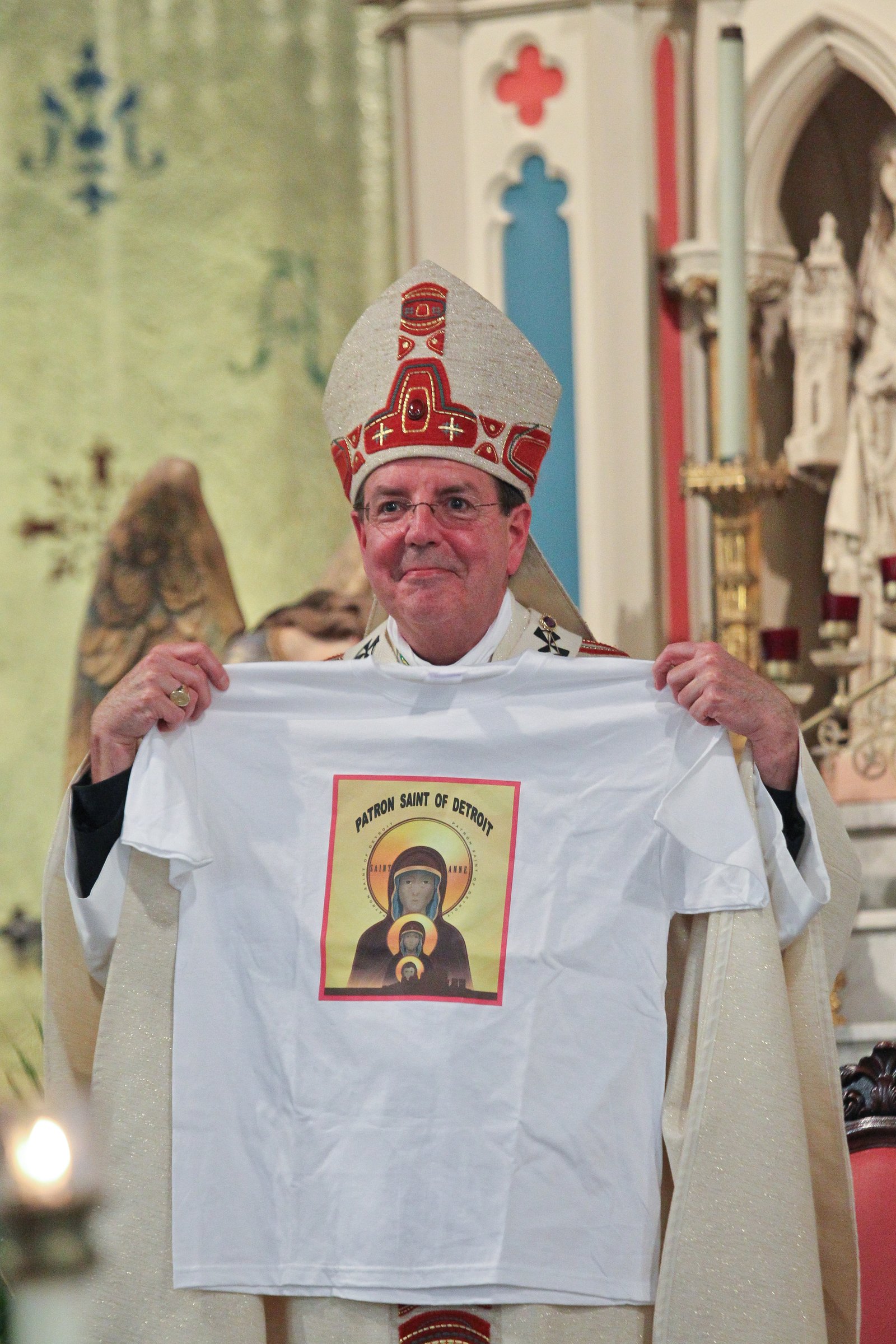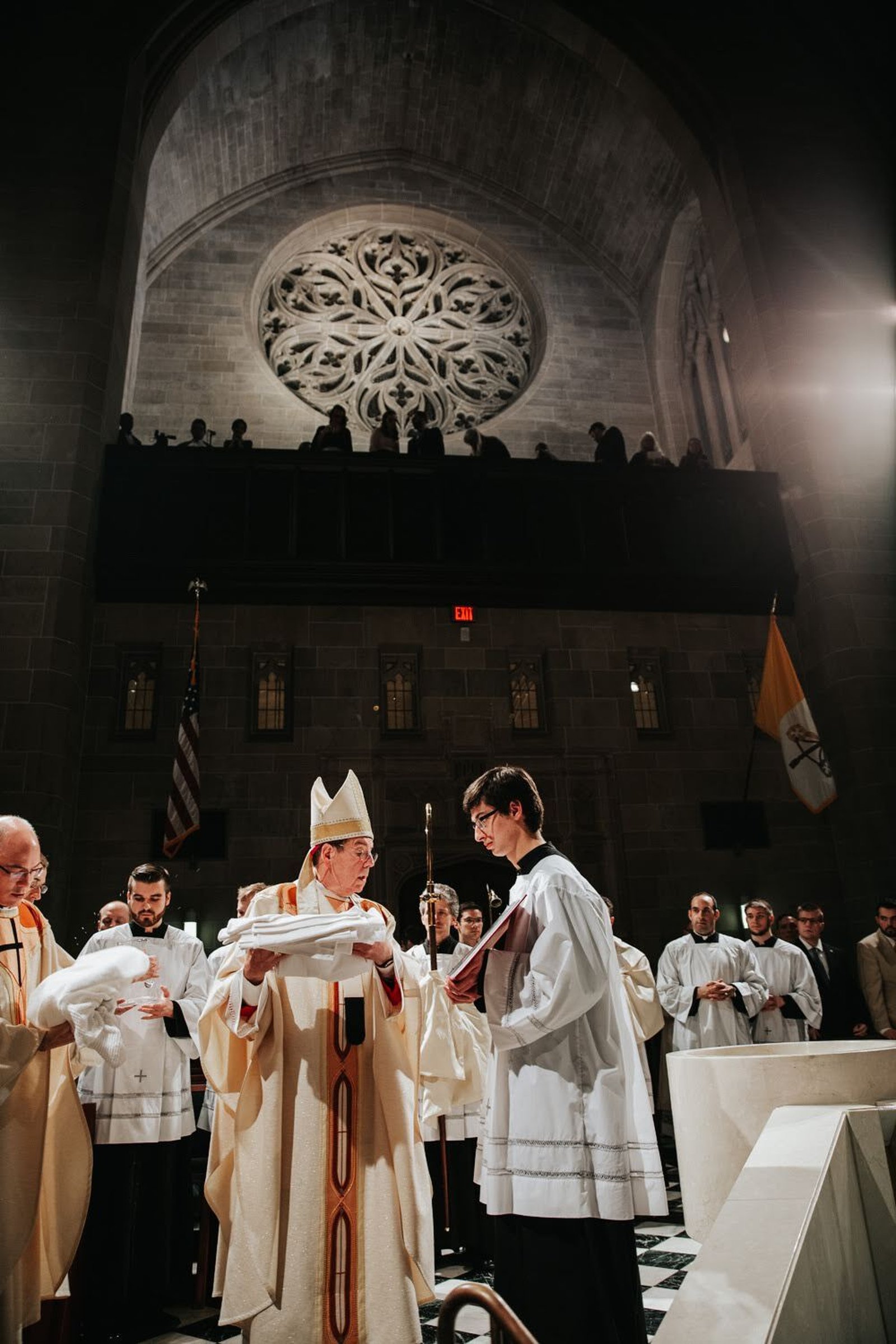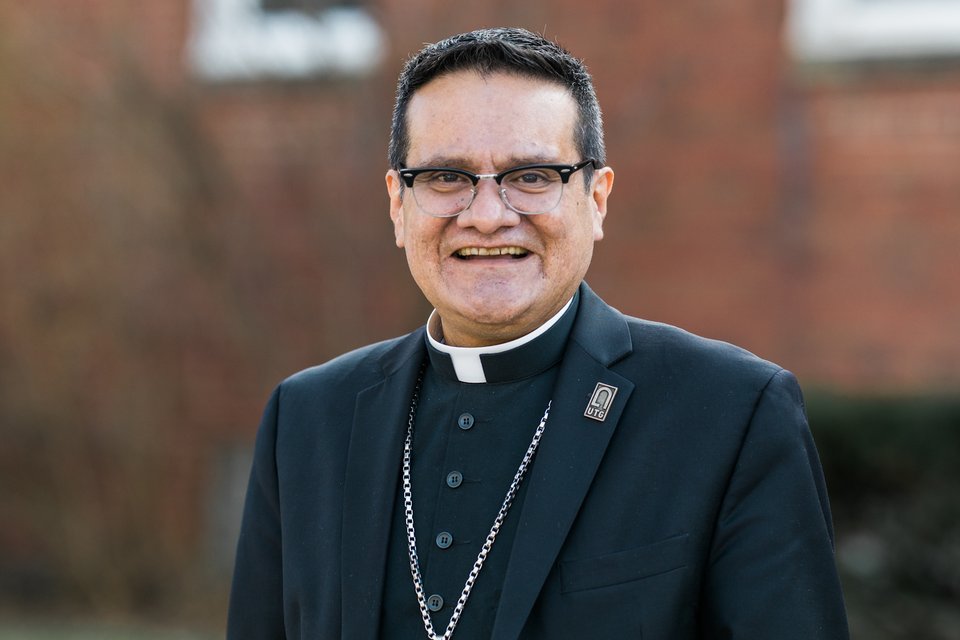As required by canon law, Detroit's chief shepherd offers his resignation to the pope Oct. 21, but focus remains on mission
DETROIT — When history books are written about the Archdiocese of Detroit, it’s safe to say the chapter covering Archbishop Allen H. Vigneron’s time as chief shepherd will be called “Unleash the Gospel.”
More than a pastoral letter, the archbishop’s 2017 document has become a living movement, a generational response to the urgency of evangelization in a modern world in many ways starved of the hope promised by Christ’s resurrection.
That chapter began in 2009, when Pope Benedict XVI called the Detroit native home from Oakland, Calif., to shepherd his hometown flock; when it concludes is up to the Holy Spirit.
On Oct. 21, Archbishop Vigneron will celebrate his 75th birthday, the age at which bishops of the Catholic Church are required by canon law to offer their resignations to the pope.
That doesn’t necessarily mean Archbishop Vigneron is retiring — when that happens is entirely up to Pope Francis and God's providence, he says.
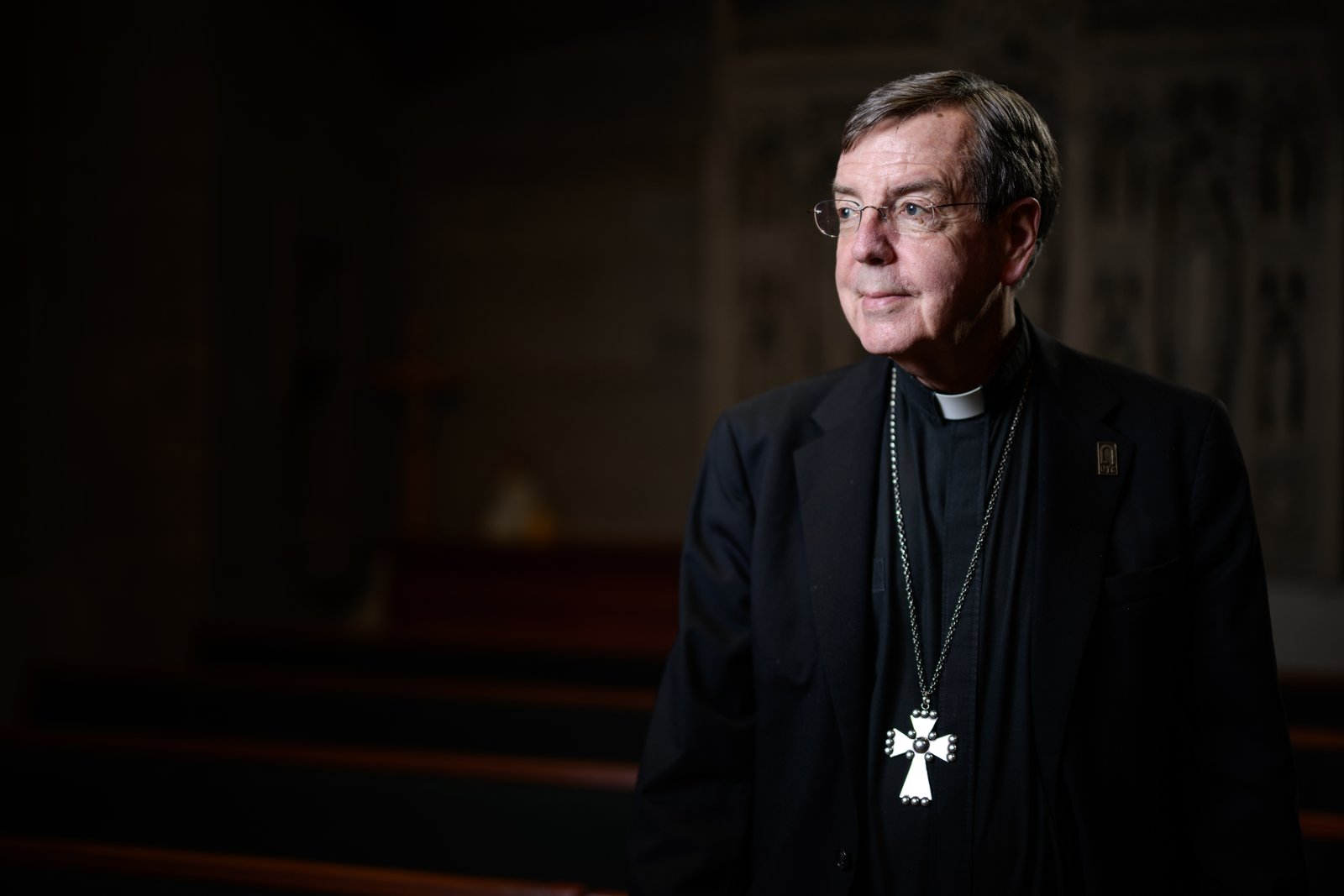
“Since the Second Vatican Council, it has been the norm in the Church that every member of the hierarchy is supposed to submit a resignation at the age of 75,” Archbishop Vigneron said in an interview ahead of his birthday. “The council fathers judged this to be wise for the life of the Church in the 20th century and moving forward. So as I turn 75, I submit my resignation to the Holy Father for him to do as he judges good for the life of the diocese and my own wellbeing.”
Currently, there are 13 other bishops age 75 or older who are still actively serving in U.S. dioceses, so it is not known when Archbishop Vigneron’s retirement might be accepted. In some cases, it has taken months or even years.
Celebrating a shepherd: Archbishop's 'deep trust in God' inspires friends, coworkers, local Church
But until that happens, Detroit’s chief shepherd says he’s happy to continue the work God has entrusted to him in leading southeast Michigan’s faithful.
While the occasion of his birthday has afforded him and others the opportunity to reflect upon his ministry, Archbishop Vigneron said his focus remains on doing the Lord’s work.
“I want to live in the present, and I’m not retired yet,” Archbishop Vigneron said. “I have been reflecting on my ministry, but insofar as I have been thinking about how to use whatever time I have left to continue to advance the message that the Holy Spirit gave us during Synod 16: that we are called to be a Church on mission.”
As the Church in the Archdiocese of Detroit expresses its gratitude to the archbishop — readers are invited to give a gift in his honor and submit their own words of appreciation — Detroit Catholic sat down with him to reflect upon where his ministry has taken the local Church, and what’s ahead still.
A steward of the synod’s graces
Ask almost anyone to identify Archbishop Vigneron’s signature achievement as archbishop of Detroit, and most will point unflinchingly to Synod 16 and Unleash the Gospel as the focal point of a movement that’s galvanized the local Church’s transformation.
Ask Archbishop Vigneron himself, and the characteristically contemplative pastor is quick to point to its source.
“I don’t really think of myself as the fundamental author of that letter. I’ve always looked at that letter as a record of the graces of the synod,” Archbishop Vigneron said. “And so, I think the synod wrote that letter. I just put words to the mind and heart of the synod.”
The three days of Nov. 18-20, 2016, changed not only the local Church’s outlook on evangelization, but they were also a true divinely inspired moment of grace for the Archdiocese of Detroit, the archbishop said.
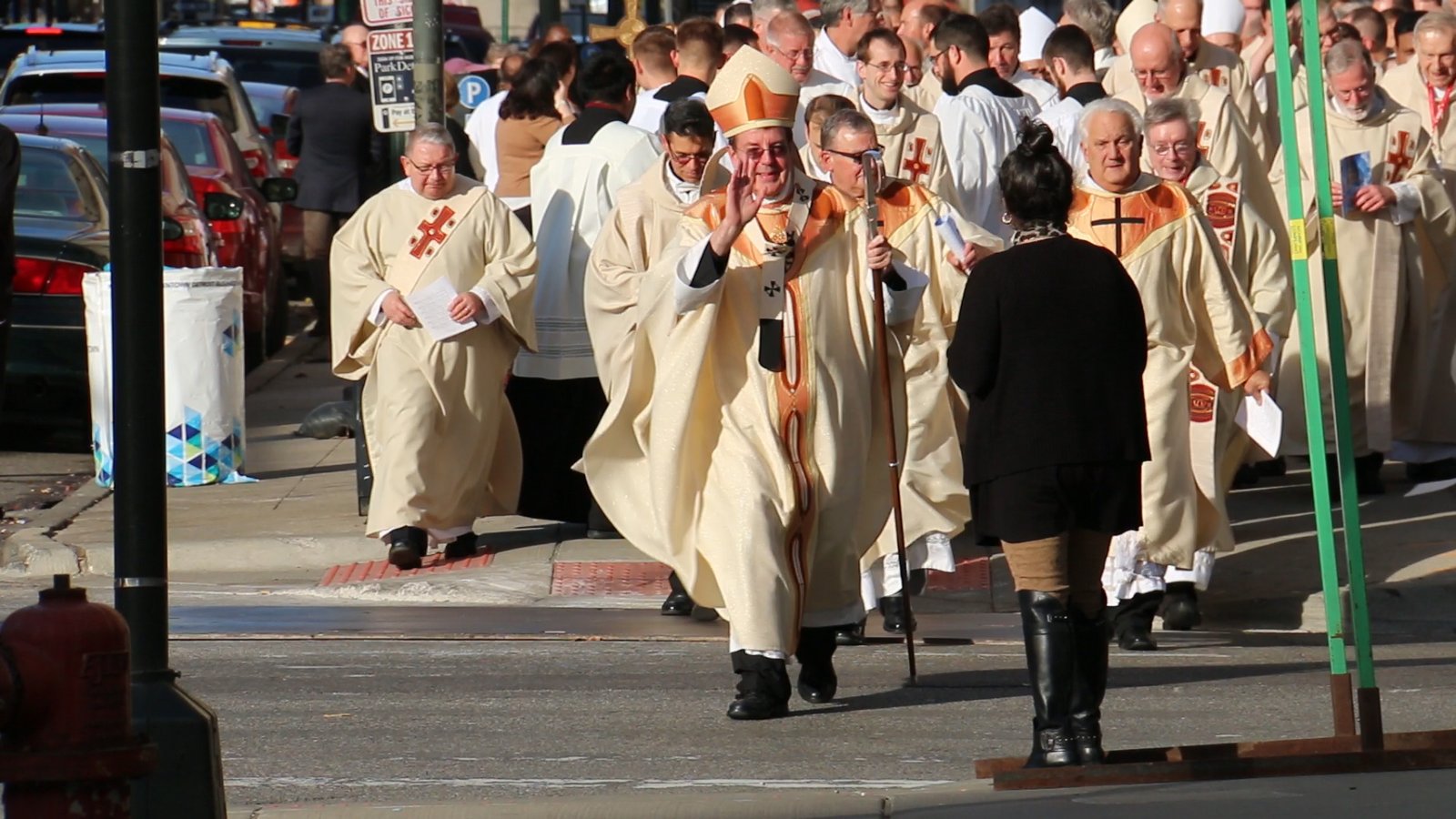
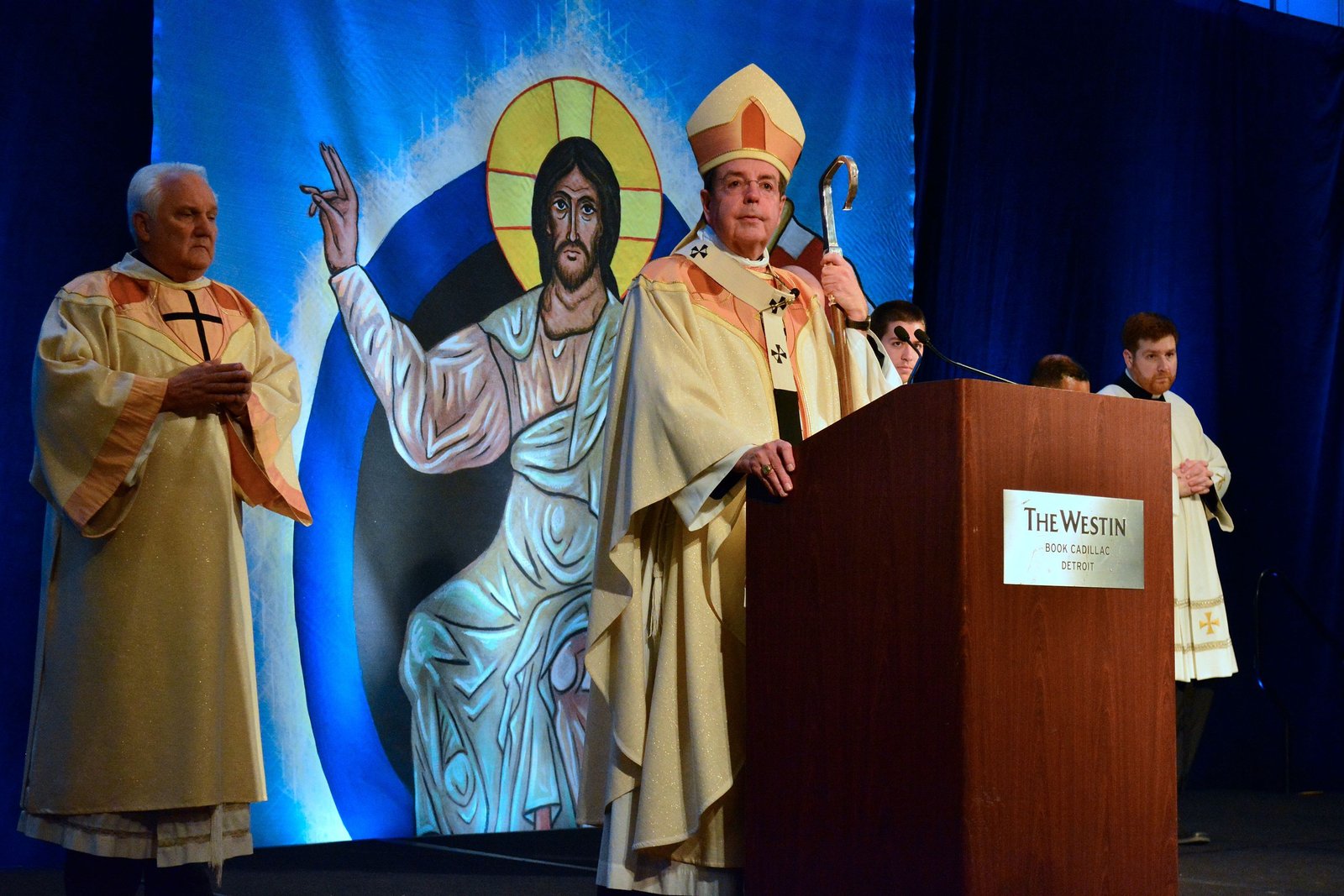
“I give God praise and thanks for the response (to Synod 16),” Archbishop Vigneron said. “It has been embraced as a gift, but it’s not my gift. This was something the Holy Spirit did, and I think people recognize that.”
The transformation of the Archdiocese of Detroit into a Church fully focused on its mission wasn’t pre-planned, but the fruits of the synod are still being borne out six years later — and that’s an unmistakable mark of something gone right, the archbishop said.
“I think we have made a full and probably irrevocable commitment to be a Church on mission. It’s become part and parcel of the way we think about ourselves and the way we talk about our aspirations,” the archbishop said. “I think we can slide back into putting maintenance ahead of mission — that’s always a possibility — but I think we’re on the road and it would be very difficult to turn back now.”
Calling a synod wasn’t immediately on the archbishop’s mind when he returned to Detroit from the Diocese of Oakland, Calif., in 2009, but coming home to a Church and city replete with challenges — including the worst financial recession in a century — he realized something had to change.
Give a gift in honor of Archbishop Vigneron's 75th birthday or send him your words of gratitude
“I didn’t decide about the synod immediately, but I knew we needed to be about what Pope St. John Paul II called the new evangelization. That’s what every local Church in the world needs to be about,” Archbishop Vigneron said.
“To me, a very important document at the turn of the millennium was St. John Paul’s Novo Millennio Ineunte, a call to all of us. And it’s been confirmed by Pope Francis with Evangelii Gaudium. So it’s not just one man’s idea,” the archbishop continued. “I came back sure that this was something I needed to do for the archdiocese, to lead in this missionary conversion, and that I needed to do it in a way to deal with the challenges.”
Those challenges included a recession that plunged the city of Detroit into its darkest economic period in several generations, including an unemployment rate topping 17 percent, homelessness and massive population declines in the city itself.
Among the early initiatives of Archbishop Vigneron’s tenure were those designed to shore up the Church’s finances, restructuring parishes and the archdiocesan Chancery and embarking on a capital campaign, Changing Lives Together, to help churches eliminate debt and complete badly needed improvement projects. The campaign also helped strengthen the Catholic presence in the city of Detroit while assisting Catholic schools.
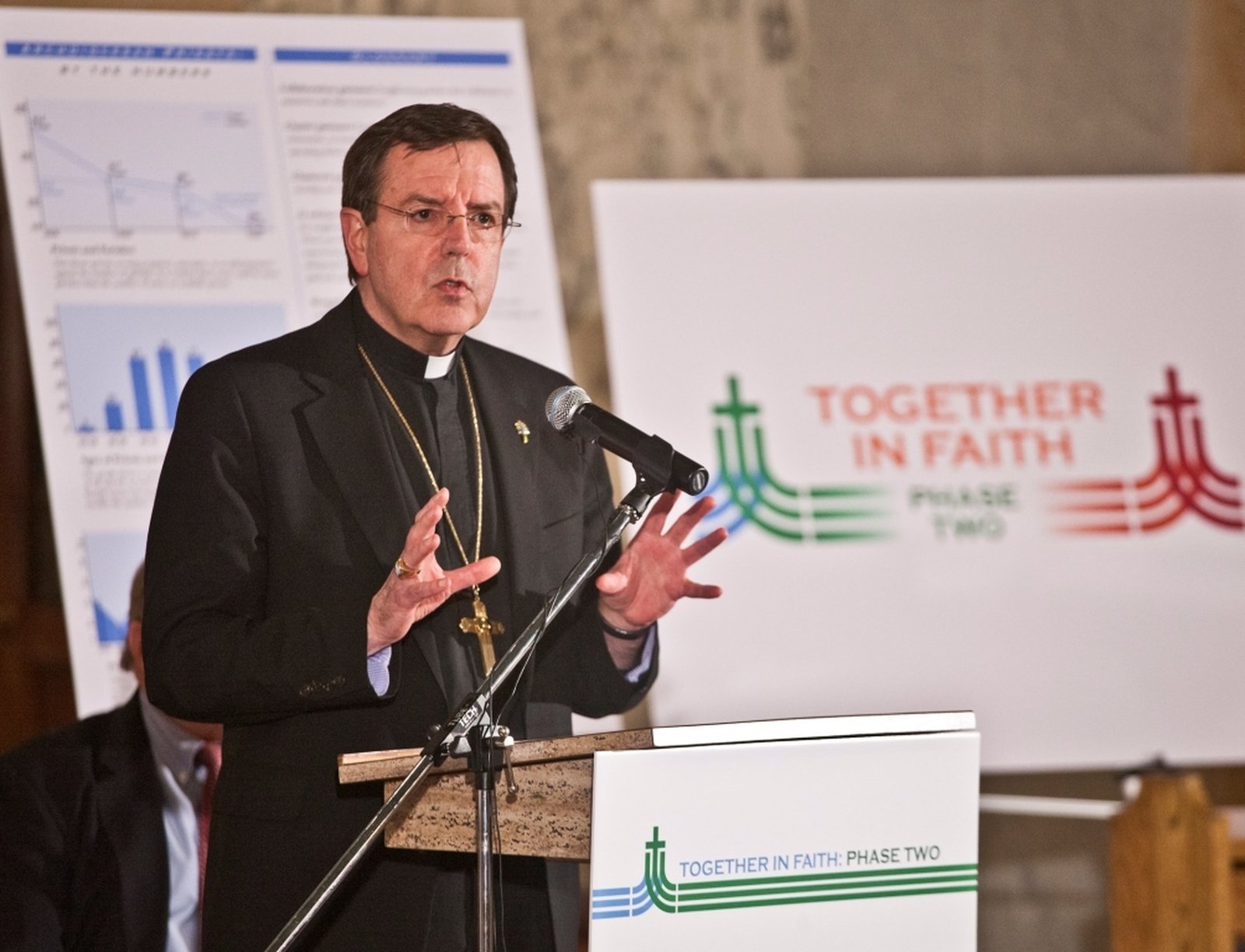
Such projects aren’t the natural forte of a former philosophy professor, Archbishop Vigneron admitted.
“I’m much more involved in the theoretical — that’s the side of my life that I enjoy more. But being the father of household, when the roof leaks, you have to take care of that,” he said. “It wasn’t a challenge I would have hoped to have, but it was the one presented to me.”
Archbishop Vigneron is quick to credit those he’s fond of calling his “co-workers in mission” — lay Catholics and clergy upon whom he’s relied for counsel, advice and wisdom — with lending their expertise to help him chart a course to serve the people of God in southeast Michigan.
A student of history, Archbishop Vigneron said such lay participation in Church leadership and decision-making was a key outcome of the previous archdiocesan synod in 1969, which took place on the heels of the Second Vatican Council.
“I don’t think our Synod 16 would have been possible without Synod 69, led by Cardinal (John F.) Dearden, which was an opening up to a lot of lay leadership in the archdiocese,” Archbishop Vigneron said. “Our tradition, built up from the end of the ‘60s into the turn of the millennium, created the atmosphere, the milieu, out of which we could have this shared work of clergy, religious, and lay faithful to advance the mission of the Church.”
Those individuals — members of advisory councils, parish staff members, school teachers, volunteers, curia staff, and people in countless other roles — have formed the backbone of the Church’s efforts to rediscover and renew the vibrancy of the Gospel in southeast Michigan, the archbishop said.
“I’m very grateful for their generosity, and I’ve enjoyed seeing the satisfaction that talented people have in being able to use their talents for the glory of God,” Archbishop Vigneron said. “I give God praise and thanks for the gifts God gave them, and that they have put those gifts at the disposition of the Church.”
A Detroit bishop for a Detroit church
Few bishops would have been as uniquely positioned to understand and respond to the Archdiocese of Detroit’s challenges as a son of the local Church.
Archbishop Vigneron knows how rare it is for a bishop to be asked to shepherd his home diocese — he is currently one of just three U.S. archbishops in such a position — so the native of Fair Haven was shocked when he received the phone call from the papal nuncio on Jan. 5, 2009, six years into his tenure across the country as bishop of Oakland, Calif.
One person in his life, however, wasn’t at all surprised.
“When I told my dad and mom that I was coming back to Detroit, my mom said, ‘Oh, I knew this was coming,’” Archbishop Vigneron recalled. “(She said,) ‘I told the Blessed Mother it needed to happen, and she’s never let me down.’”
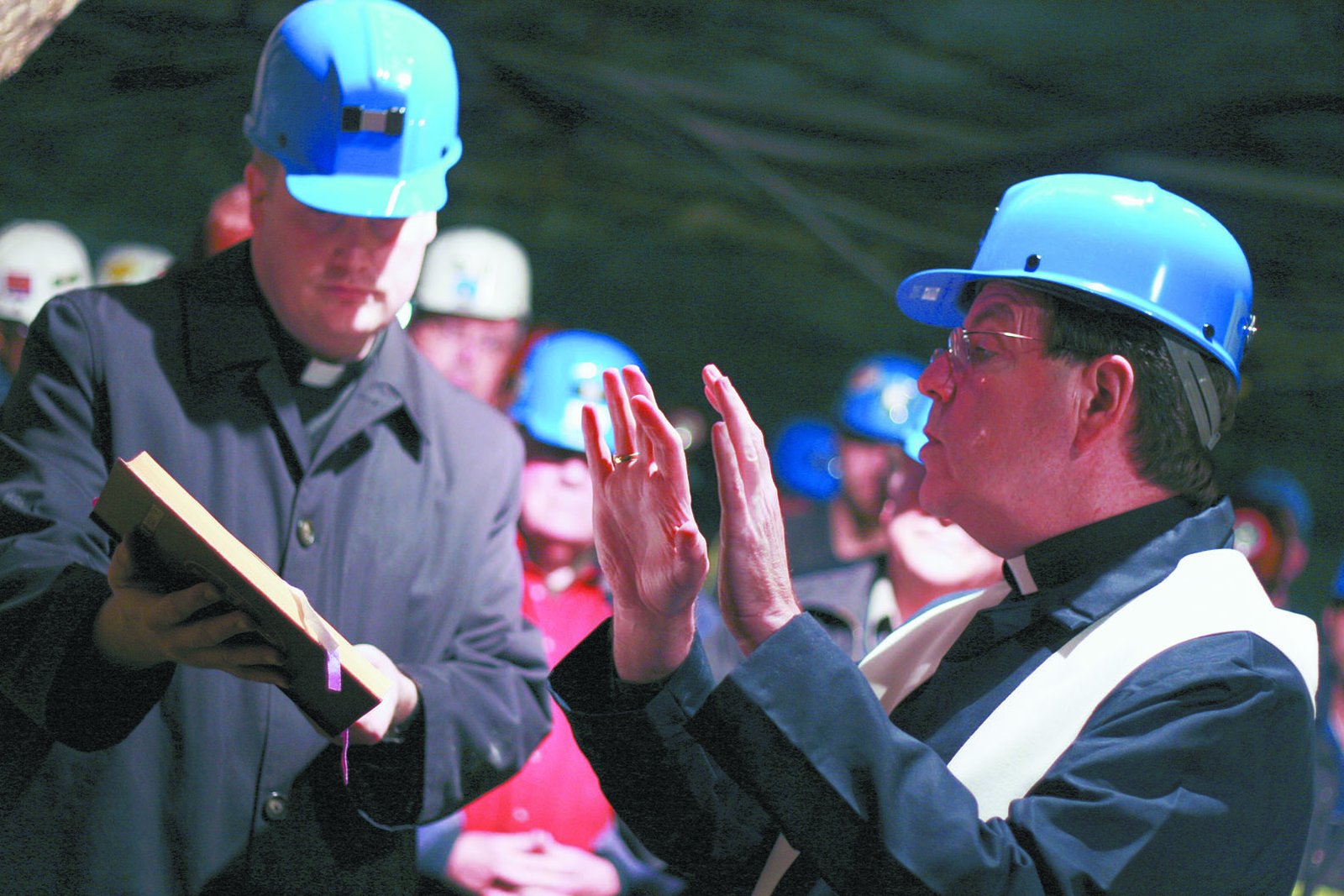
Over 14 years as archbishop, the Blessed Mother has never let Bernadine and Elwin Vigneron’s son down, either. As a bishop intimately in tune with the soul of Detroiters, he’s prayerfully shepherded a local Church that’s undergone many changes in the past several decades.
“Sometimes we’re described as ‘gritty,’ but that’s not exactly the right word,” Archbishop Vigneron said. “I think I would characterize the people here as resilient. And I think that’s also true about the faith of people in southeast Michigan. We’ve been through some difficult times. Some people say we’re coming out of them — I don’t know if that’s true or not, but we’ve been persevering.”
For a city that once boasted more than 2 million people, Detroit’s rise and fall — and subsequent rising from the ashes, in keeping with its famous motto — has been well-documented, and it mirrors in a way the Church’s own history here.
As the archdiocese’s path forward came into clearer focus, the idea of gathering the local Church together for a synod didn’t just seem like a good historical idea, but a uniquely Detroit one.
“It’s a very different situation from Cardinal Mooney’s church in the 1940s and ‘50s. People know that something needs to be different,” Archbishop Vigneron said. “The priests and people here care about the Church, and they want the Church to do the work of Christ. To find a path that’s thinkable and doable in the 21st century, I think, is very appealing to people. They don’t want to be stuck doing yesterday’s solutions to today’s challenges.”
But first, the Church needed to pray — and, perhaps just as importantly, to heal.
In 2014, Archbishop Vigneron called for a Year of Prayer for a New Pentecost in the archdiocese, followed by a year of parish-level discussion and listening sessions. In 2016, Archbishop Vigneron led the community in a Mass for Pardon, a powerfully moving liturgy in which Detroit’s five bishops prostrated themselves before the altar of the Cathedral of the Most Blessed Sacrament, imploring God’s forgiveness for the institutional sins of the Church, and the ways in which individuals and communities had fallen short.
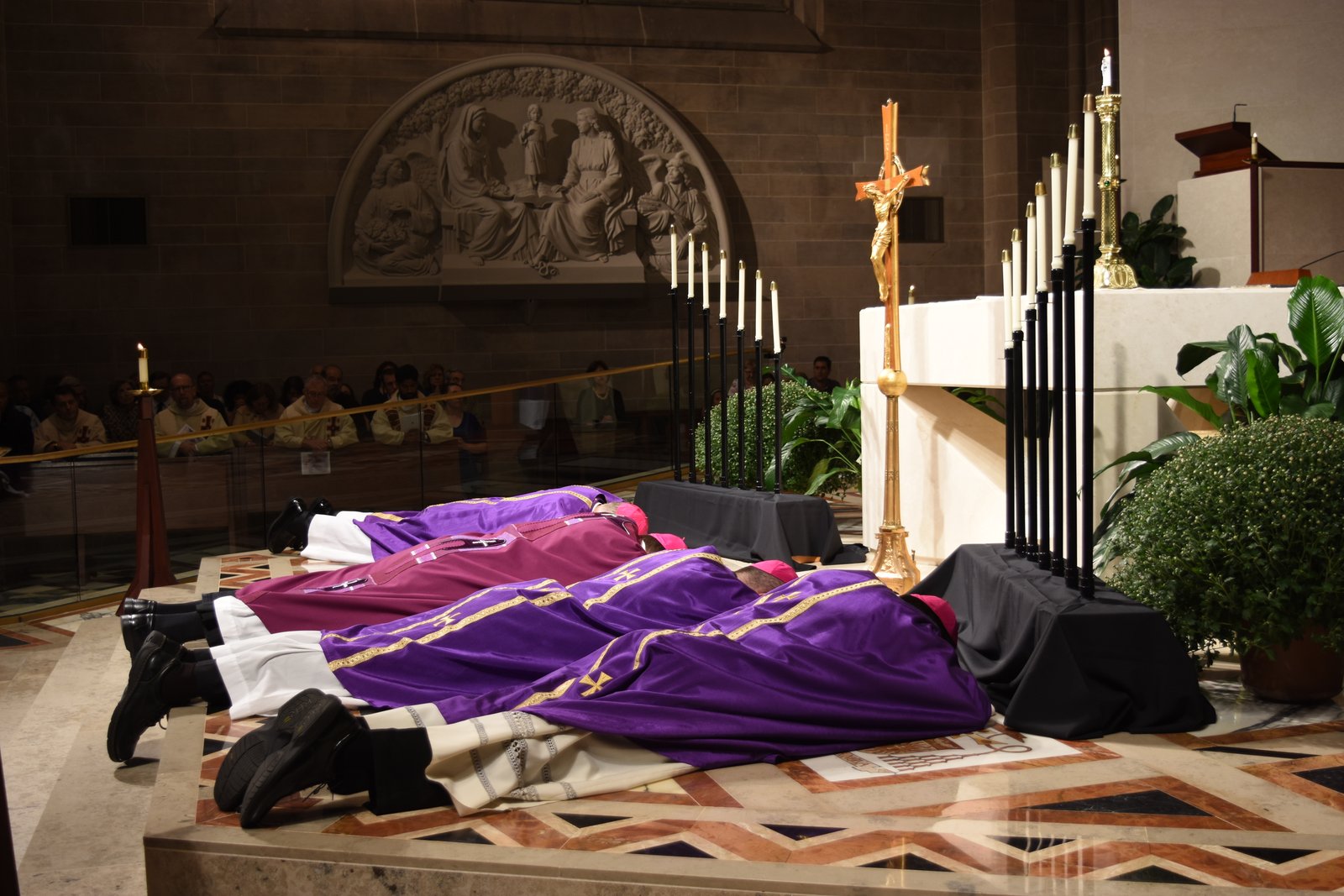
“At the beginning of St. Mark’s Gospel, there’s a duo: ‘Repent, and believe in the Gospel,’” Archbishop Vigneron said, referencing St. John the Baptist’s words in Mark 1:15. “There can’t be any service or advancement of the good news without repentance. If you try evangelizing without repenting, it’s not going to work.”
When the synod finally opened in November 2016, it was the culmination of years of preparation — and yet only the beginning of the Holy Spirit’s movement to transform Detroit’s Church into something greater, Archbishop Vigneron said.
“Throughout the history of the Church, synods have proven themselves as a way to bring the whole community together and for the Holy Spirit to pour out his gifts on a variety of people, all of whom can contribute to the result,” Archbishop Vigneron said. “And so, it was the right vehicle by historical confirmation, and it’s proven to be the right vehicle insofar as it has engaged the whole Church in Detroit, up and down every level.”
In many ways, Detroit’s synod was ahead of its time. As the global Church prepared for its own synodal process — a process currently ongoing with the Synod on Synodality in Rome — even the Holy See took notice of the good work already being undertaken in the Motor City.
Cardinal Mario Grech, the general secretary for the Synod on Synodality, commended Detroit’s synod as a model for the universal Church in a letter to Archbishop Vigneron in February 2022.
“It seems to me that Synod 16 is in complete harmony with the synodal vision to which Pope Francis is inviting the whole Church,” Cardinal Grech wrote. “For this reason, I write to ask you for your prayers as, with God’s help, I lead the Church through the synodal process of Synod 2021-2023.”
In the immediate aftermath of Detroit's synod, God’s graces continued to flow upon the city, starting with the historic beatification of Blessed Solanus Casey, a Capuchin friar known for his radical trust in God, on Nov. 18, 2017, exactly one year after the synod.
Archbishop Vigneron said he’s watched joyfully in the years since as the rest of the country has gotten to know Detroit’s hometown saint.

“I always want to talk about Father Solanus with others — I always say he’s like our own local Padre Pio. He means a great deal to us,” Archbishop Vigneron said. “The love (Detroiters) have for Father Solanus is not like a chocolate bar, where the more you give away, the less you have.”
There was also the great honor of having two Detroit-area churches designated by the pope as minor basilicas — the National Shrine of the Little Flower Basilica in Royal Oak in 2015 and the Basilica of Ste. Anne, Detroit’s founding parish, in 2020.
While a great source of pride for the archdiocese and both parishes, the archbishop is quick to stress that both designations are “more than honors” for the local Church. Like everything else, it’s about evangelization, he says.
“I think the leaders in both basilicas understand this — it’s about a new mission, a particular mission,” Archbishop Vigneron said. “That’s very much the case in both places. There’s a need to evangelize with that kind of tone to it.”
In addition to the basilica in her honor, in 2011, the Holy See named Ste. Anne the patroness of the Archdiocese of Detroit at Archbishop Vigneron's request, a nod to the crucial role she played in the city's founding in 1701.
“The parish of Ste. Anne was started the day after the city of Detroit was founded,” he said. “That means something. The presence of that basilica reminds all of us that the Catholic Church was here at the beginning, and we’re not going away. We have a mission to this community, and it comes from the beginning.”
A spiritual father, a spiritual brother
Whenever Pope Francis accepts Archbishop Vigneron’s retirement, there will be parts of the job he won’t miss — all the mail and paperwork, for instance, he says — but there are far more aspects of being an archbishop that have always brought him joy.
One of those is a summer seminar he holds each year with seminarians from Sacred Heart Major Seminary at Manresa Jesuit Retreat House in Bloomfield Hills.
“It’s an opportunity for me to think along with the seminarians. We read some texts together, I comment, they comment, and that gives me a lot of joy,” Archbishop Vigneron said.
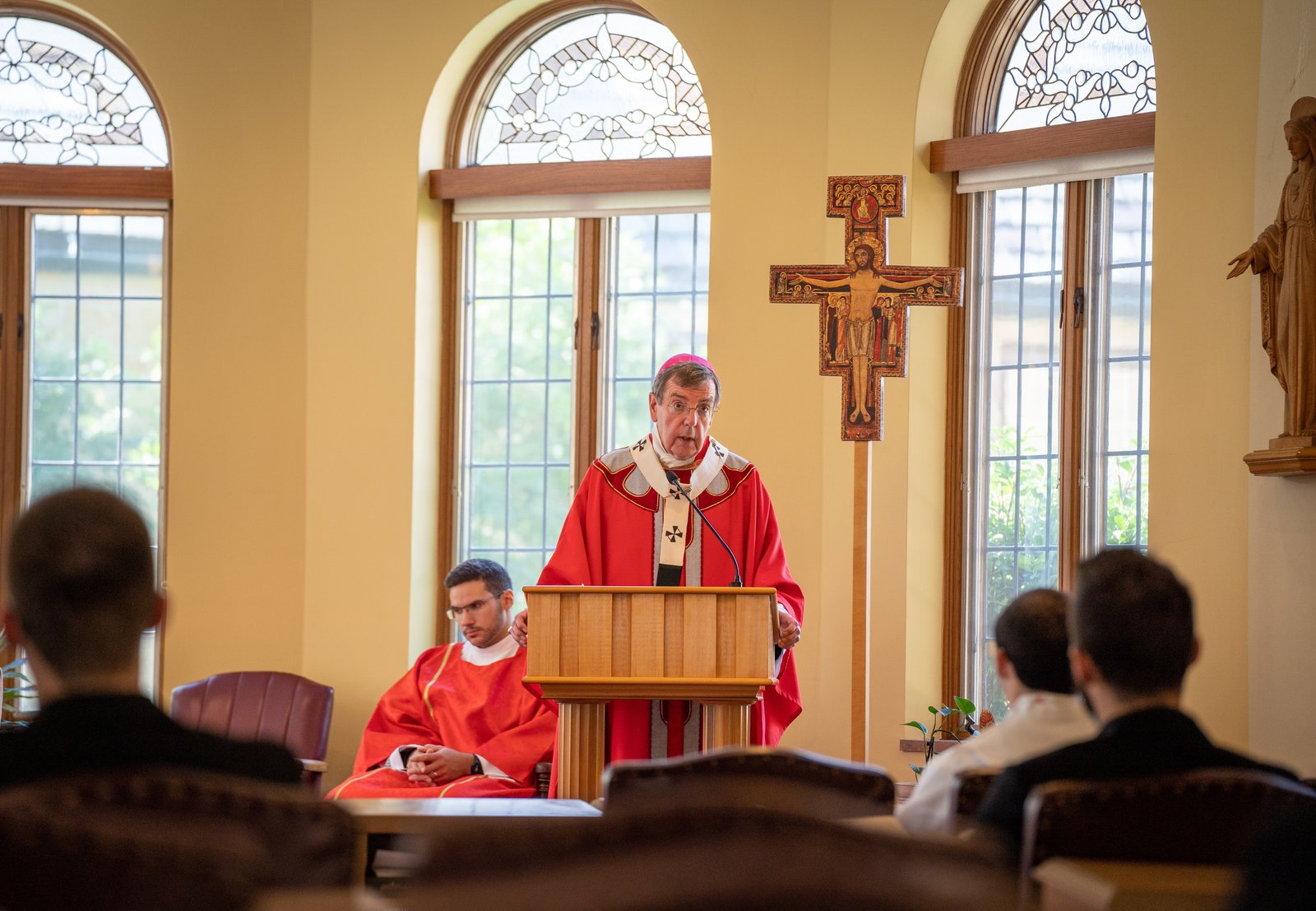
The archbishop has often referred to himself as a spiritual “coach,” a role that’s always meant a great deal to him throughout the years.
“I think in some way, that’s part of every priest’s life, to be a spiritual father,” the archbishop said. “A father is always a kind of coach to his sons and daughters. For me, it’s an opportunity to coach about priestliness. I think it’s a paradox that when you give away wisdom in coaching of any kind, you wind up owning it more.
"I’ve always wanted to be a priest, and so if I can help other men on the road to priestliness, it’s a way for me to take ownership of my own priesthood more fully,” Archbishop Vigneron added.
For the priests and deacons of the Archdiocese of Detroit, the archbishop shares a unique natural bond not only as a spiritual father, but as a Detroit priest himself, a spiritual brother.
“I think any bishop has that fraternal bond with his presbyterate, but my blessing is that there’s a more significant, natural basis for it on the foundation of shared experience, a shared life together,” Archbishop Vigneron said. “By helping my brother priests to flourish, that’s a way for me to flourish in my own priesthood.”
Apart from the natural affinity he feels for the Blessed Mother and St. Joseph, as well as Detroit’s patrons Blessed Solanus and Ste. Anne, Archbishop Vigneron said he’s always looked to St. Philip Neri as an example and intercessor for his own priesthood, admiring the saint’s holiness and wry sense of humor.
“St. Philip was known for his good humor and simplicity and directness,” Archbishop Vigneron said. “He’s a particular patron for me because he’s so different from me. He’s a great balance and a reminder to me not to get too upset about things and just enjoy the human parts of life."
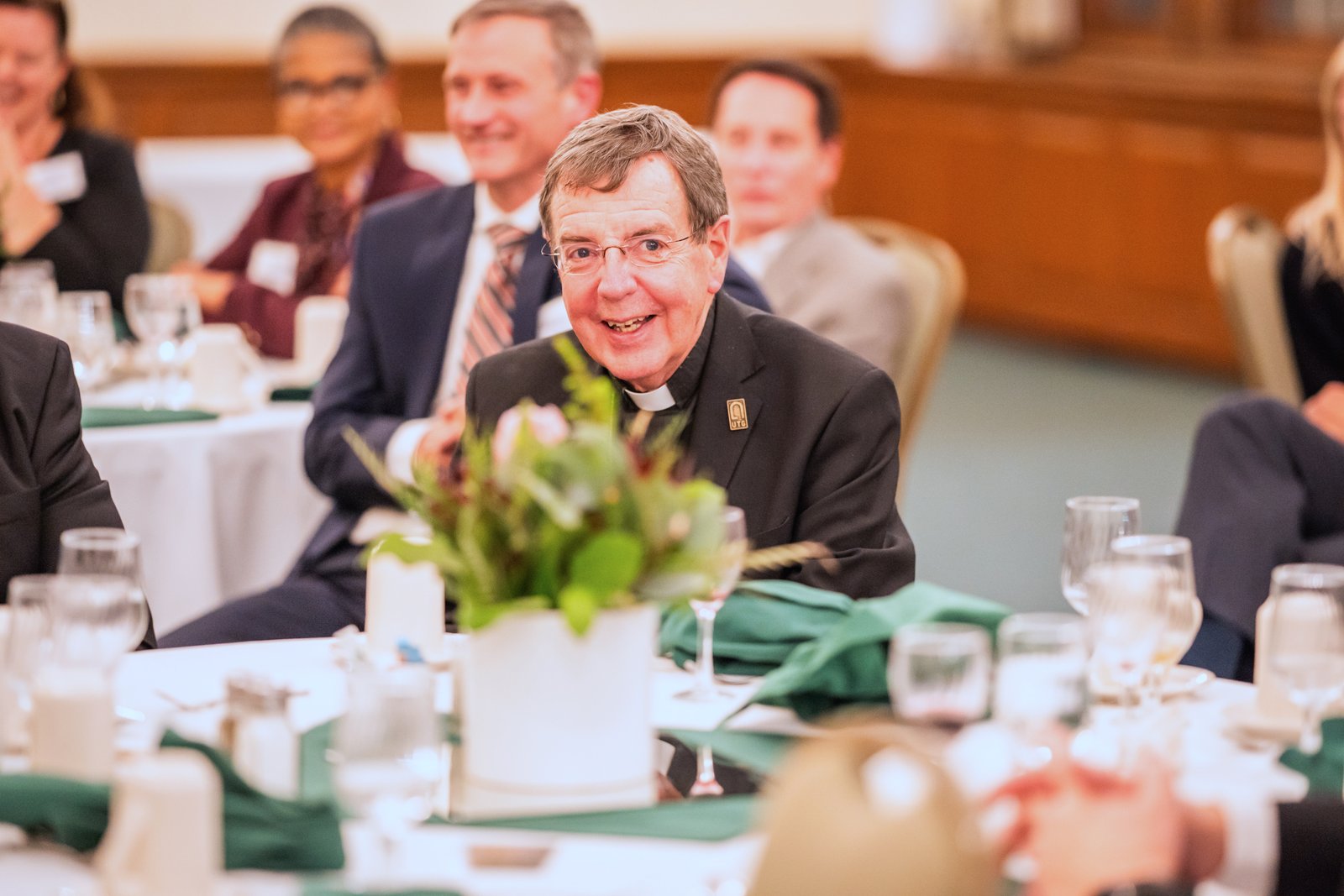
“There’s a great story I love,” he continued. “St. Philip had as one of his penitents a priest who worked in the Roman curia, who eventually became a cardinal, and then was elected pope. When St. Philip came to have an audience with his spiritual son, who was now the pope, he walked up to the new pope, took the zucchetto off the pope’s head, put it on himself, tapped him on the cheek and said, ‘Well, you’re still not such a big deal.’
“Now, I would never do such a thing,” Archbishop Vigneron laughed, “but St. Philip is a good reminder to me of the humanness of holiness.”
The archbishop's own sense of humanity and humility has served him well over the years, especially during challenging times, allowing him to connect on a down-to-earth level with the people of the Archdiocese of Detroit.
Such a connection was evident during the archbishop’s emotional first “virtual” Mass on March 15, 2020, during the early days of the pandemic. Livestreamed from an empty Cathedral of the Most Blessed Sacrament, the camera lens revealed a spiritual father with a heart breaking for his flock.
Determined to accompany in prayer those suffering from the virus, the archbishop pledged — his voice breaking and tears welling in his eyes — to place the Archdiocese of Detroit under the trust and care of Our Lady of Lourdes, known for her spiritual protection of the sick.
During the same Mass, he pledged to build a grotto to Our Lady of Lourdes “as a lasting token of my gratitude, our gratitude, for the protection of the Blessed Virgin Mary” — a promise the archbishop recently fulfilled with the blessing of a new outdoor grotto at the cathedral Oct. 3.
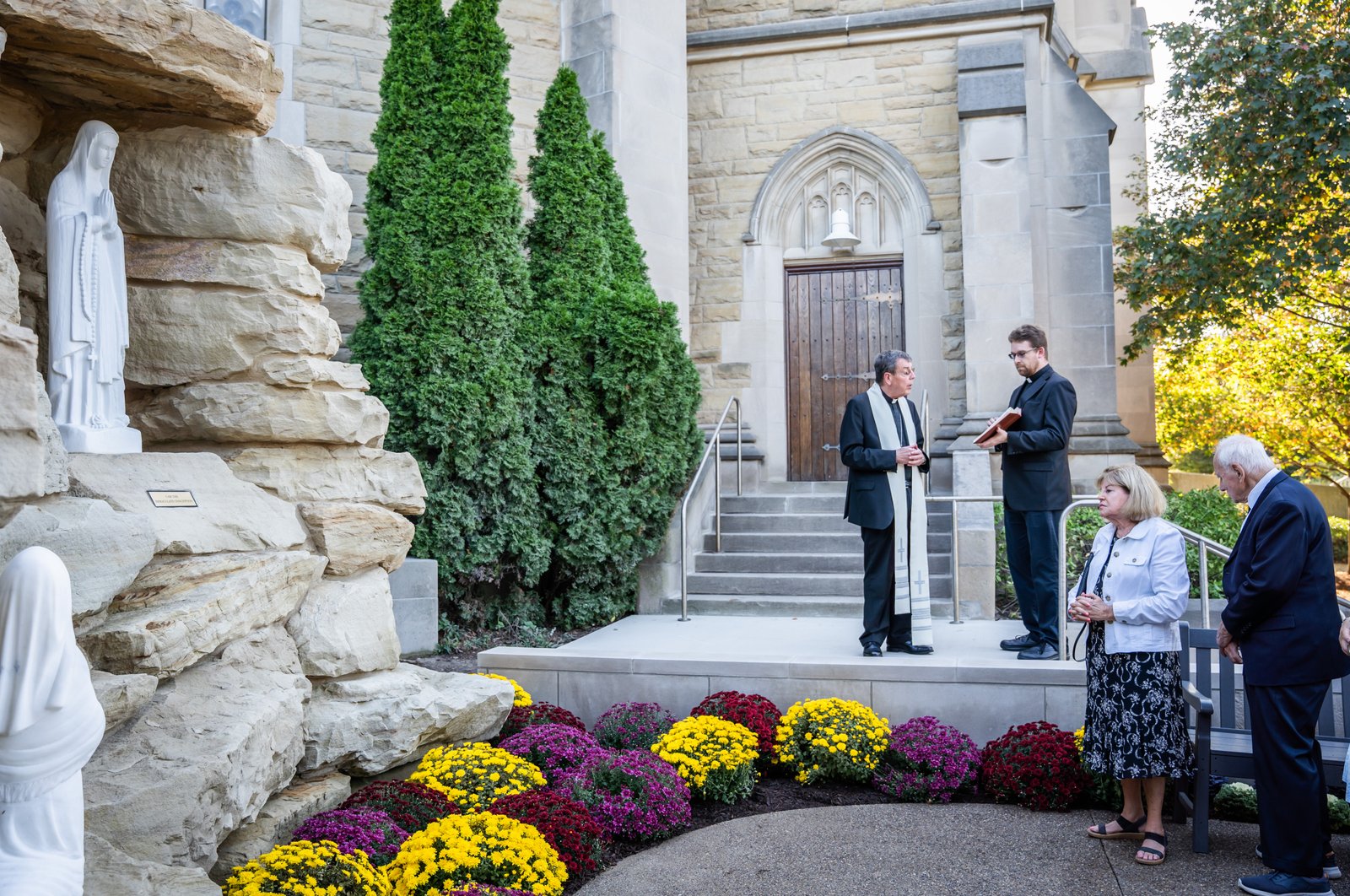
Charging ahead on mission
Since the onset of the pandemic, new challenges have arisen — an aging and shrinking presbyterate and declines in weekly Mass attendance among them — but the archbishop has remained steadfast in his resolve that the Gospel remain at the heart of every new initiative and every proposed solution.
The local Church’s response to the crisis, including the announcement of a new form of organization for parishes, called Families of Parishes, all stems from the original call the Church in Detroit received during Synod 16, he insists.
“We prayed about it, did some consultations, and this is the path we chose," Archbishop Vigneron said. "Why act? Because if we didn’t take this path, we would still have to face those other challenges (such as the priest shortage). It’s better to walk on the path that gives you a long-range solution than to just do a patch-up. If I believe in the synod, I need to do what’s best for the mission long term, rather than just a Band-Aid.”
The archbishop admits it hasn't been an easy road. Why not leave the challenges for the next archbishop?
“Well, then I’d be about maintenance, wouldn’t I?” Archbishop Vigneron said. “And I wouldn’t have been evangelized, and I wouldn’t have had a conversion, and I’m not going to be very good in asking the priests and people of the archdiocese to walk the path of the synod if I can’t do it.”
After three long years of Zoom meetings, social distancing and wrestling with the problems of tomorrow, Archbishop Vigneron said the recently held Missionary Renewal Assembly in June — a three-day gathering of priests, deacons and parish leaders from across the Archdiocese of Detroit — was a spiritual shot in the arm for the local Church, reminiscent of another three-day gathering in which the Holy Spirit spoke powerfully to and through the people of God.
“It was meant to be a refresher of the synod, and it reminded me that we can keep doing this. We can go back again and again,” Archbishop Vigneron said.
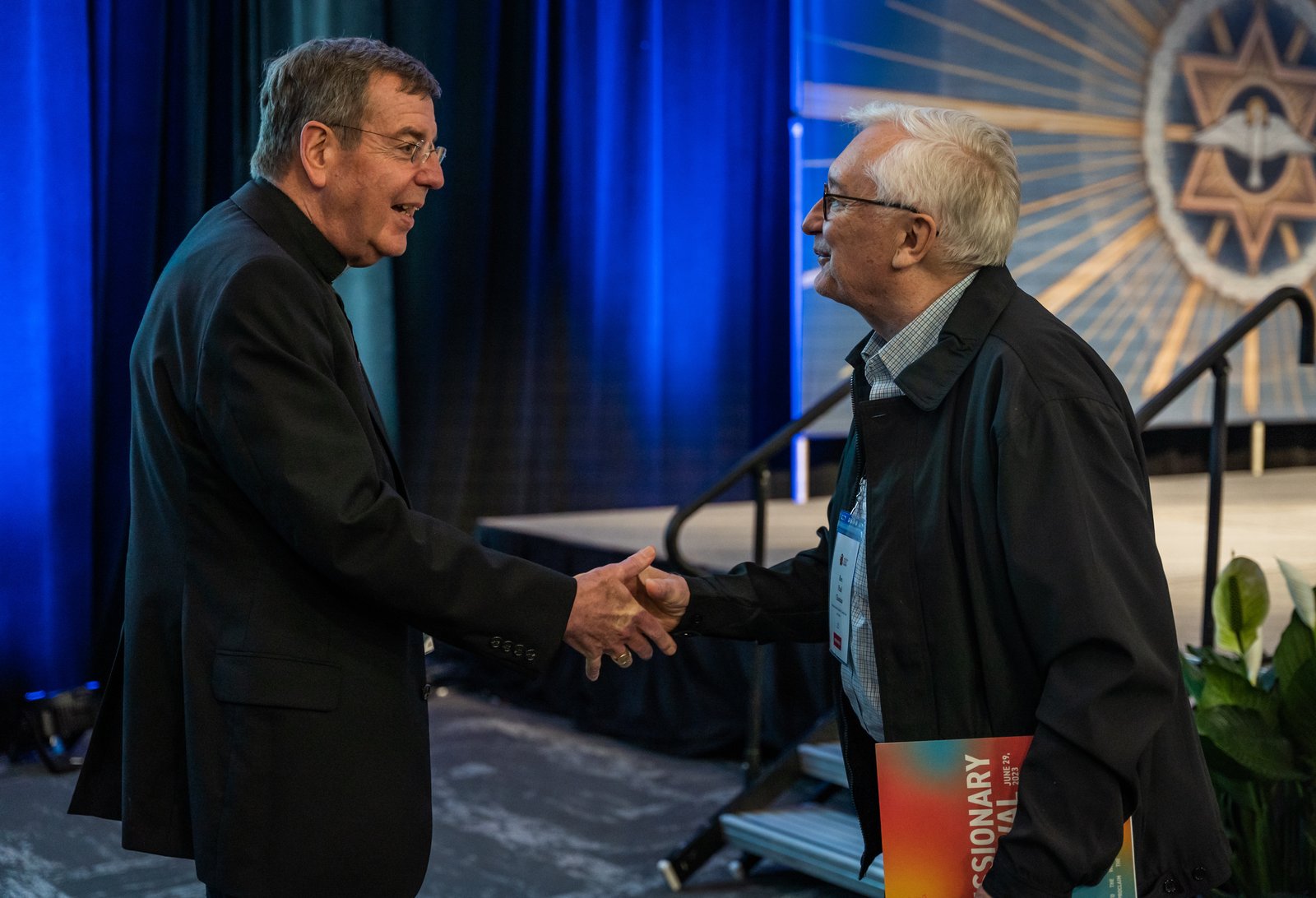
“The renewal of theology in the 20th century came about from going back to the sources,” he continued, always the scholarly professor. “The synod is a living stream of vitality, and we just need to keep tapping into it. When we talk about the synod, we’re really talking about the Holy Spirit, and the action of the Holy Spirit is this living stream of vitality.”
As he turns 75, Archbishop Vigneron remains full speed ahead on the mission of the synod — in some ways personally animated by the vitality of an ever-advancing kingdom of God. Asked whether he feels there’s still “unfinished business,” he doesn’t hesitate.
First, he’d like to continue work on a plan to reinvigorate Catholic schools in the Archdiocese of Detroit. Second, given the growth of medical schools in southeast Michigan, he’d like to provide more opportunities for spiritual and intellectual formation for the area’s medical students, doctors and nurses.
“I think there’s a lot that remains to be done,” he said.
Ultimately, whether he’s archbishop of Detroit for another five weeks or another five years, Archbishop Vigneron will continue to keep his eyes fixed on the mission of the synod — on Jesus.
And his reflection, at this stage, is simple.
“I’m very grateful for all of the good, all the graces God has given me through the people who have been part of my life,” he said. “And that’s enough.”
Copy Permalink
Bishops


